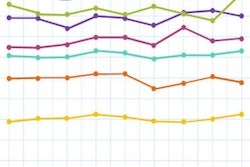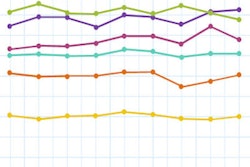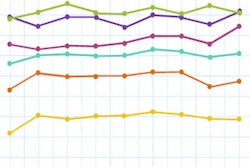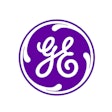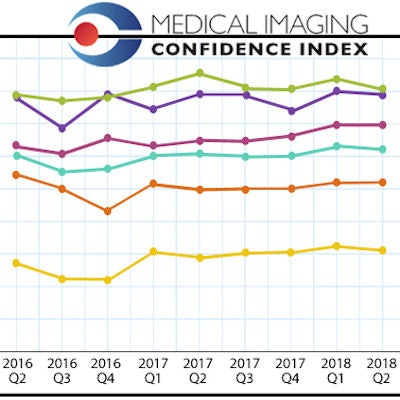
Radiology administrators and business managers continue to show cautious optimism in their future business prospects, continuing an 18-month period of stability in the Medical Imaging Confidence Index (MICI), according to the latest numbers for the second quarter of 2018.
The composite MICI score has been hovering at about 110 since the first quarter of 2017, with only minor variations in sentiment in the MICI component topics, such as confidence in reimbursement and access to capital. Comments made by individual radiology administrators and managers show some fissures, however, with some sites reporting satisfaction with imaging volumes while others complain of reimbursement pressure and a continued push to reduce imaging.
The Medical Imaging Confidence Index is derived from survey responses of radiology administrators and business managers who are members of the AHRA, the association for medical imaging management. Market research firm the MarkeTech Group queries members of the MICI panel about five important trends faced by radiology administrators in the upcoming quarter to provide a barometer of their sentiment about near-term business prospects.
For the 2018 second-quarter data, the index included 166 participants from across the U.S., with 13% based in the Mid-Atlantic region, 14% in the South Atlantic region, 6% in the East South Central region, 22% in the East North Central region, 17% in the West North Central region, 13% in the West South Central region, 5% in the Mountain region, and 10% in the Pacific region.
Participants were asked to rate their optimism about the five topics, and a single composite score including all five categories was also calculated. Scores ranged from 0 to 200 and can be interpreted as follows:
- < 50 = extremely low confidence
- 50 to 69 = very low confidence
- 70 to 89 = low confidence
- 90 to 110 = an ambivalent score (neutral)
- 111 to 130 = high confidence
- 131 to 150 = very high confidence
- > 150 = extremely high confidence
Radiology administrators were most optimistic that their internal operating and staff costs would remain constant, with a mean score of 131. They were also confident that their facility will maintain/grow as a profit center, with a score of 129, followed by confidence in their facility's ability to grow monthly in diagnostic and interventional imaging, with a score of 120.
| MICI scores by topic for Q2 2018 | ||
| Topic | Mean score | Interpretation |
| Internal operating and staff costs will remain constant | 131 | Very high confidence |
| Will maintain/grow as a profit center | 129 | High confidence |
| Will grow monthly in diagnostic and interventional radiology | 120 | High confidence |
| Composite score across all areas | 112 | High confidence |
| Will have access to capital for imaging equipment and IT needs | 102 | Neutral |
| Will receive adequate reimbursement from Medicare for diagnostic and interventional imaging | 81 | Low confidence |
MICI scores for the second quarter of 2018 and their relationship to the previous eight quarters are shown in the following chart.
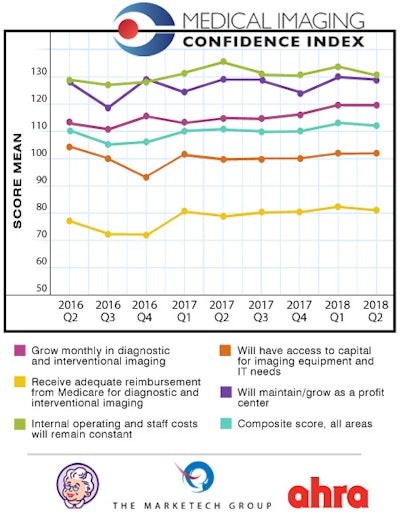
In the open response section of the MICI survey, radiology administrators and business managers expressed different levels of confidence in their business prospects. Some were seeing positive signs in their business, with higher procedure volume and more patients going ahead with elective procedures due to the strengthening economy.
But others continued to experience competitive pressures, particularly with reimbursement from third-party payors and efforts to clamp down on overuse of imaging through tools such as prior authorization and clinical decision support.
"The fight with insurance continues to get more difficult for imaging," one respondent said. "Preauthorization takes a tremendous amount of resources from the hospital for advanced imaging. We continue to do everything we can to make the process for the ordering physician a path of least resistance. If it becomes an issue, ordering physicians will look for alternatives. Very frustrating."





